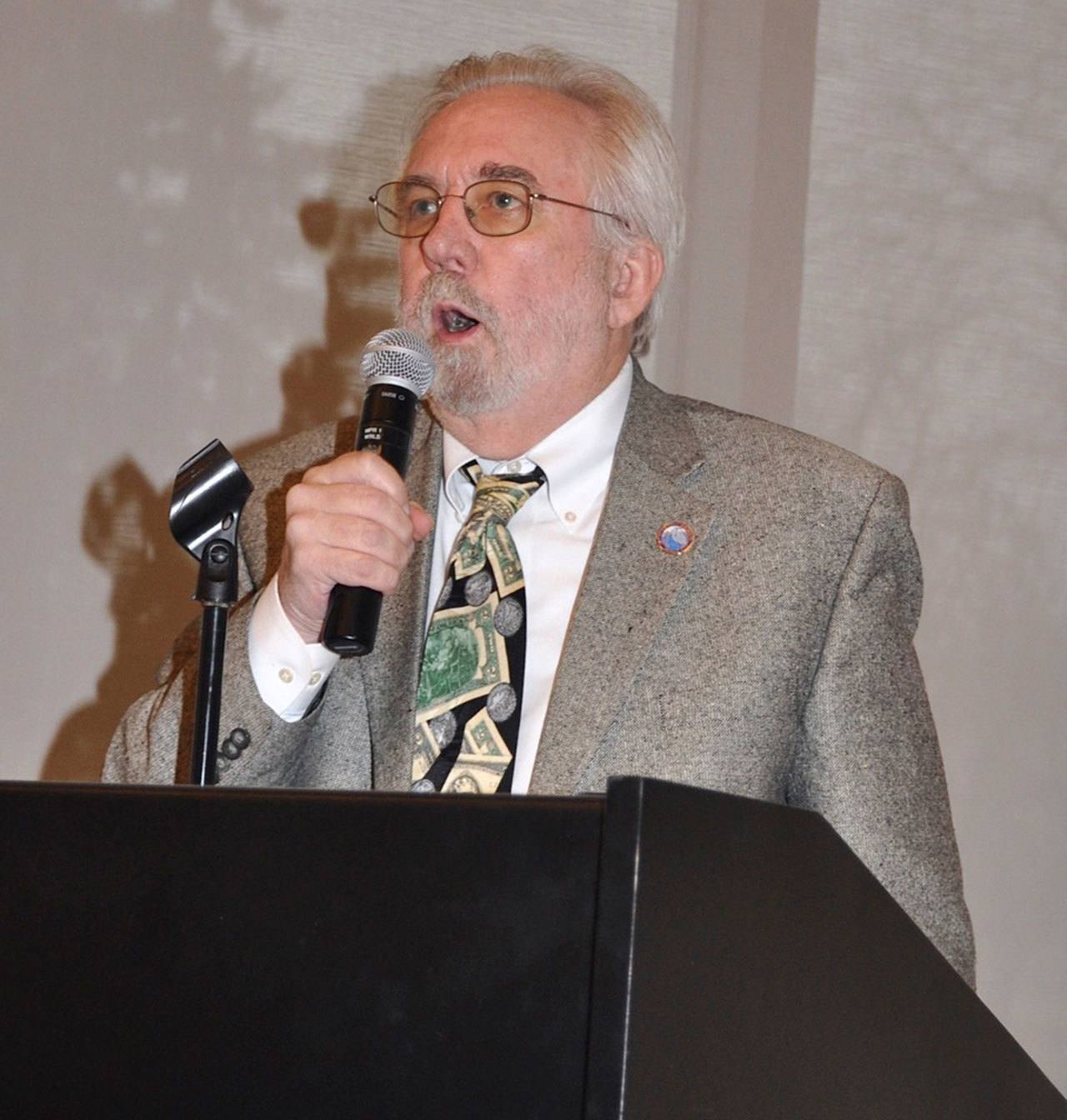Hemmed in on three sides by the cities of Auburn and Pacific, and on the fourth by the steep hillside on its western flank, Algona is always going to be the same 1.3 square miles it is today.
Where fishing derbies and barbecues thrill the locals, where Jones knows Smith, Johnson and Williams, and likely Young.
Where the cops know all the local “characters,” and all the local characters know them, Mayor Dave Hill said during his share of the Auburn, Algona and Pacific state of the city addresses Tuesday afternoon at the Community and Event Center in Auburn’s Les Gove Park.
“We’re kind of a Mayberry RFD type of thing,” said Hill, Algona’s mayor since 2006. “We’re a small city, but we do everything the bigger cities do, everything Auburn does, everything Renton does.”
That is, Algona has a water department, a sewer system, potholes to fill, a certain amount of yearly work on its roads to keep them passable, and a police department.
But the City is not standing still.
While Algona carries no debt at the moment, Hill said, it is busy selling $3 million worth of bonds to finance its major capital project of the moment: construction of a community center, the sort of thing Algona has never had.
In recent weeks, Hill continued, the City has reached a tentative agreement with King County’s Solid Waste Division, and should the Algona City Council and King County officials approve that agreement, the county’s new transfer station will be built in Algona.
When King County cleans up the site of the present-day transfer station, as it has agreed to do, the county will transfer the 5-acre site to Algona, which expects to rezone it for retail development, Hill said.
“Another thing we got with that agreement is road maintenance. I think it’s the first time King County Solid Waste has made an agreement with anybody to reimburse us for the damage they are going to do to our roads by having the heavy Waste Management trucks (on them),” Hill said.
By the close of summer 2017, Hill said, Algona expects to complete overlays and partial rebuilds on two of its major thoroughfares: West Valley Highway from First Street, north to Ellingson Road; and part of Pacific Avenue.
The City has secured a grant from the state of Washington to pay for that work, and Safeway has agreed to pick up the local matching share of that grant.
Algona also looks to complete City Hall because local government there has outgrown the present structure.
“We’re doing good in the city,” Hill said.
Plans in Pacific
In Pacific, said Mayor Leanne Guier, the average home value is $240,000, the average income is $62,000, and the City’s annual budget is $23 million,
Most of the homes there are in King County, most of the businesses are in Pierce County.
In a city whose population recently topped 7,000, 50 percent of the population is white, 15 percent Hispanic, 12 percent Asian, 10 percent Hawaiian, 6 percent is composed of two or more races, and 2 percent is black and native American,
“It’s important to know these things to plan for the community,” Guier said.
And there’s the key to understanding what is happening in Pacific in 2017: whole lotta planning going on.
If one is going to entice business to a community, Guier said, it’s important to understand what its needs are. And how to increase revenues to answer those needs.
On the positive side, since 2014 sales tax revenues have increased 50 percent.
In partnership with the City of Sumner, Pacific has created an industrial manufacturing center.
And last year, the City celebrated completion of the Stewart and Valentine road projects, with plenty of help from businesses along Stewart Road like Gordon Trucking and Valley Freight Lines.
Of course, challenges remain.
Yes, Pacific wants to help businesses by having good streets — the rub is how to fund them. At the moment, City leaders are split on whether to impose $20 car tabs.
As one council member recently suggested, Guier said, how about putting one all-important question to a vote: are residents willing to see their property taxes raised to pay for better streets?
In the city of Pacific, Guier said, property taxes are about to increase by 12 percent, and it’s going to be a hard sell to convince residents to support more on top of that.
“And with the car tabs – we’re really glad for Sound Transit 3 – I’m not sure the council is going to pass $20 car tabs,” Guier said.
Guier served on the Pacific City Council from 2009 until the council appointed her mayor in July 2013. In 2015, voters elected her mayor in her own right.
“The City is thriving, we’re moving forward, and there’s a lot of good things on our horizon,” Guier said.



